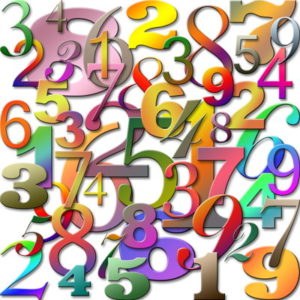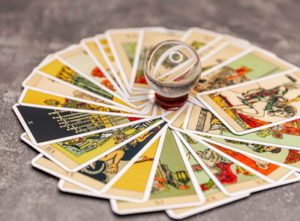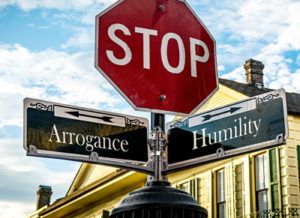 In betting, as with in sports supporting in general, people convince themselves that they have some sort of control. This isn’t necessarily control of whether or not they are able to stop betting, though we will touch on that, but rather the outcome of the bets that people end up placing.
In betting, as with in sports supporting in general, people convince themselves that they have some sort of control. This isn’t necessarily control of whether or not they are able to stop betting, though we will touch on that, but rather the outcome of the bets that people end up placing.
Bettors tend to believe the illusion of control over things, which can cause any number of problems in terms of how people feel about the bets that they place and the results of the wagers that they have already placed that have been settled one way or another.
It is not uncommon for people to believe that chance events are somehow controllable. Imagine a player of craps who thinks that if they throw the die in a specific way then they will be able to get them to land in a way that will help their bets.
The reality is that the throw will have next to no control, but they fall for the illusion that it does and then bet accordingly. Similarly, people tend to bet less when someone else is in control of the die than when they’re throwing them themselves. This illusion of control can lead to people making poor decisions whilst gambling.
The Desire For Control
 The first thing to realise is that everyone wants to be in control. How many sports fans the world over have worn lucky underwear, say, or entered a stadium through a specific gate because they believe that this will ensure that their team wins?
The first thing to realise is that everyone wants to be in control. How many sports fans the world over have worn lucky underwear, say, or entered a stadium through a specific gate because they believe that this will ensure that their team wins?
In reality, such decisions make precisely no difference to the outcome of a random event like a sports match, but people enjoy that feeling of control that wearing their lucky pants gives. Them, just as it is for watching sports events, so too is it relevant to when people choose to place wagers.
As human beings, we have a desire to seek causality. We struggle to see various events as independent from one another, so the win by the sports team came about because of the lucky pants, not because they were superior.
There is an argument that religion came about from this very concept; ancient man couldn’t understand how things happened, so credited a mystical being with doing it rather than believing that it was random. Interestingly, it isn’t just humans that have this desire for control in the animal kingdom.
An experiment by B. F. Skinner in 1948 shows that pigeon’s believed that they had influence over whether they received food from a hopper or not. The opening of the feeder was entirely random, but the pigeons believed that whatever the action was that they had engaged in when it opened the last time was the reason, so they would nod, turn or do some other action in the hope that it would trigger the release of food.
Each of the pigeons developed their own ritual that they thought was leading to them getting food when they were all irrelevant to the opening of the hopper.
Influenced By Personal Choice
 Nearly every game that you can play in a casino is entirely random in nature. As you might imagine, it does casinos no favours to have games that can be controlled by the players, given the fact that they are designed in order to take as much money off punters as possible.
Nearly every game that you can play in a casino is entirely random in nature. As you might imagine, it does casinos no favours to have games that can be controlled by the players, given the fact that they are designed in order to take as much money off punters as possible.
Even so, bettors believe that they can control things because of their personal choices. Lottery players believe that they will win more when picking their own numbers than when they’ve oped for a Lucky Dip, in spite of the entirely random nature of lotteries as whole.
This is often re-enforced by the fact that punters will win some bets. Rather than understanding the randomness of it all, many will think that they have won because they did something ‘right’ that they hadn’t done before.
This means that the propensity to believe a behaviour is responsible for an outcome rather than chance tends to lead to people feeling as though they are the reason that something has happened when, just like the pigeons making random movements, the ultimate outcome is a completely separate event to what the bettor was doing.
It Is Worse For Pathological Gamblers
 This sense of the illusion of control tends to be worse for those with a gambling problem. People tend to struggle to distinguish between events that are controllable and those that aren’t.
This sense of the illusion of control tends to be worse for those with a gambling problem. People tend to struggle to distinguish between events that are controllable and those that aren’t.
The illusion of control is a universal phenomenon, but it is one that problem gamblers suffer from more than most. They are more likely to over-estimate their chances of winning a particular bet, or over-value some odds over others. Whilst that is something that most of us do, it is particularly bad for problem gamblers who want to believe that they can influence things.
For many, the illusion of control allows them to pin their hopes on something other than just sheer luck. Problem gamblers feel as though they haven’t had any luck, which is why they lose bets so often. Rather than admit that it is because they aren’t very good gamblers, they instead look towards the idea that they didn’t do something correctly.
Craps players didn’t throw the dice softly enough, say, or those that love roulette didn’t watch the ball closely enough. It is all an illusion, but an illusion that offers hope to those falling for it.
How To Avoid Falling For It

In many ways, it is all but impossible to stop yourself from falling for the illusion of control. If you’re placing a bet on something, you’re doing so because you think you have a chance of winning the bet in question; most of the time at least.
The key thing to remember each and every time you place a bet is that no one has control over what is essentially a completely random situation. Both of the sports teams or players that make a final will believe that they have control over the outcome, but ultimately one of them is going to lose.
You need to get into the habit of separating the essential information that you need to know from the secondary information that is out of your control. The key thing to do is to analyse your wins or losses as dispassionately as possible, rather than believing that you had some sort of control over the outcome of the bets and that the result would’ve been different if you’d done something differently.
Instead, look at what actually happened and ask whether you could have interpreted the data differently, rather than worn different pants.
